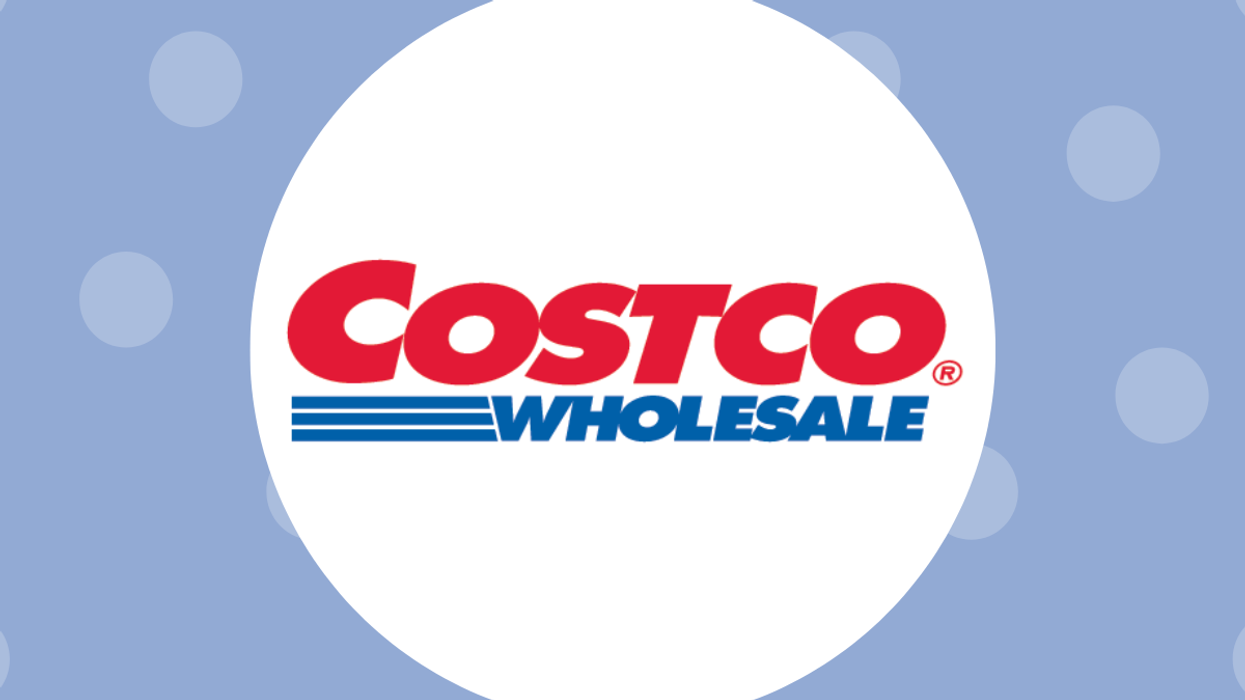Yes, coffee is okay.
Surprising Foods You Can Really Eat (and Sip) During Pregnancy
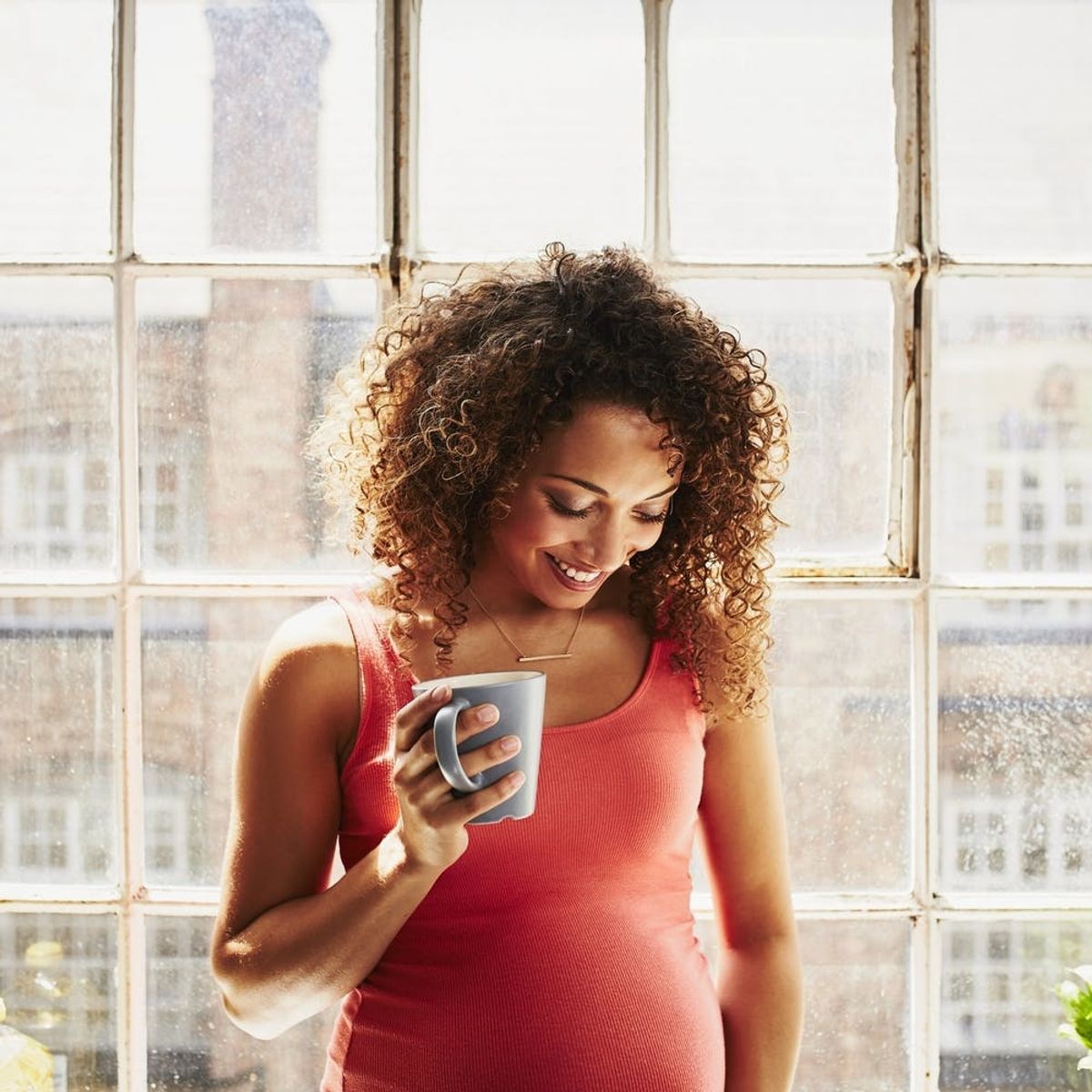
The internet is awesome — it lets us do so much and learn so much. BUT when it comes to what to eat (or not eat) during pregnancy, the internet can definitely be a source of confusion and anxiety. Our cookbook, Healthy, Happy Pregnancy Cookbook, has an entire chapter dedicated to making the food recommendations for pregnancy less confusing. (The rest of the book is packed with recipes that take a “food is medicine” approach to common pregnancy discomforts like nausea, heartburn, and constipation.) Here are a few of the food (and drink) related facts that always surprise our clients the most.
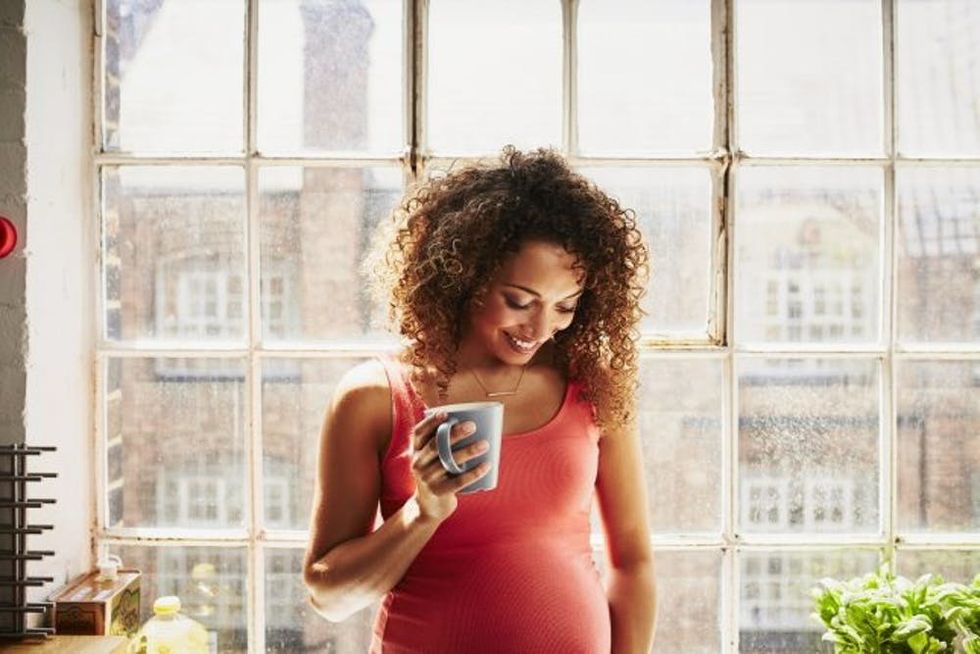
1. Coffee is okay. If you’re a fan of a daily cup or two of joe, relax. Most health professionals (and the March of Dimes) agree that consuming up to 200mg of caffeine a day is safe for baby. It is important to keep portion size and where you’re getting your coffee in mind, as caffeine levels and coffee cup sizes can vary widely. For instance, a medium coffee at many coffee shops is 16 ounces, and the coffee at Starbucks tends to have 1.5 times the caffeine of your typical home brew. We love this caffeine chart to know how much caffeine is in most common drinks.
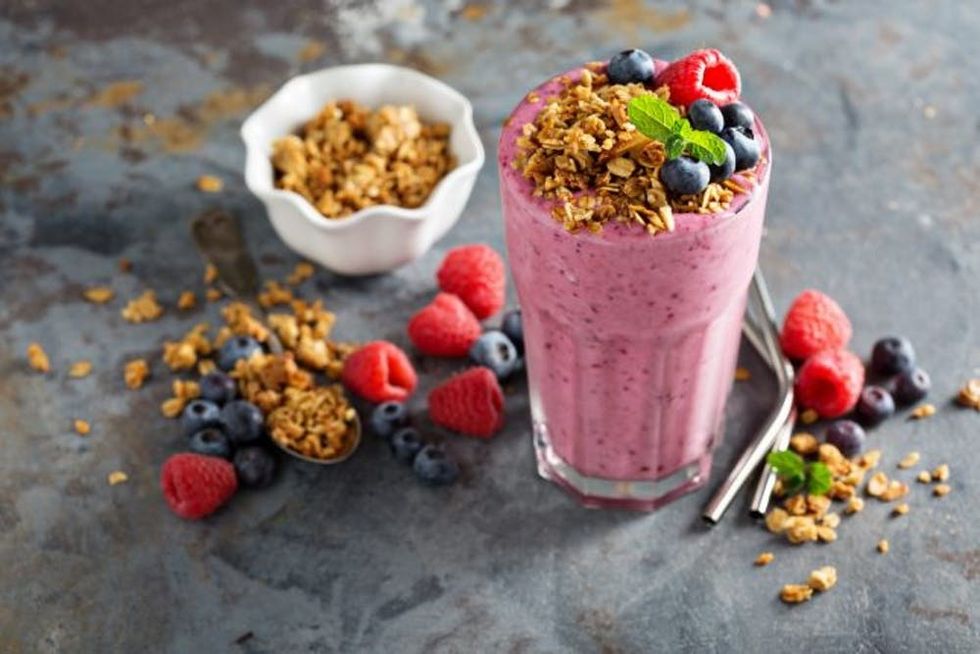
2. Protein can make you LESS nauseated. While there’s nothing that will cure pregnancy-related nausea (sorry), protein is one of the most powerful ways to minimize the severity of nausea. The thought of a grilled steak or roasted turkey might be the last thing on your mind, but getting protein in in ways that provide nutrients and also sound appealing is possible. Smoothies made with Greek yogurt, silken tofu, or protein powder; soups with pureed white beans added; and even muffins with nut butters, quinoa, and other naturally high protein foods mixed in can all help boost protein intake when all you want are carbs. You can find a whole chapter full of recipes for these exact foods in our cookbook.

3. Take brunch out of your vocabulary. Okay, maybe you can speak the word brunch — and even attend brunch — but it needs to be considered lunch. Meaning, you should have had breakfast (and probably a snack too) before you get there. When you eat, baby eats. That eight hours of sleep you get is important, but it’s equally as important to give yourself (and baby) some fuel first thing in the morning after eight hours sans food. Plus, brunch tends to be large (since most people skip breakfast) and small, frequent meals are a pregnant woman’s BEST friend. Eating smaller, more frequent meals can help keep nausea in check, as well as heartburn and other indigestion symptoms. Not to mention it helps keep your mood more stable… those pregnancy hormones can make for a nasty case of the hangries!
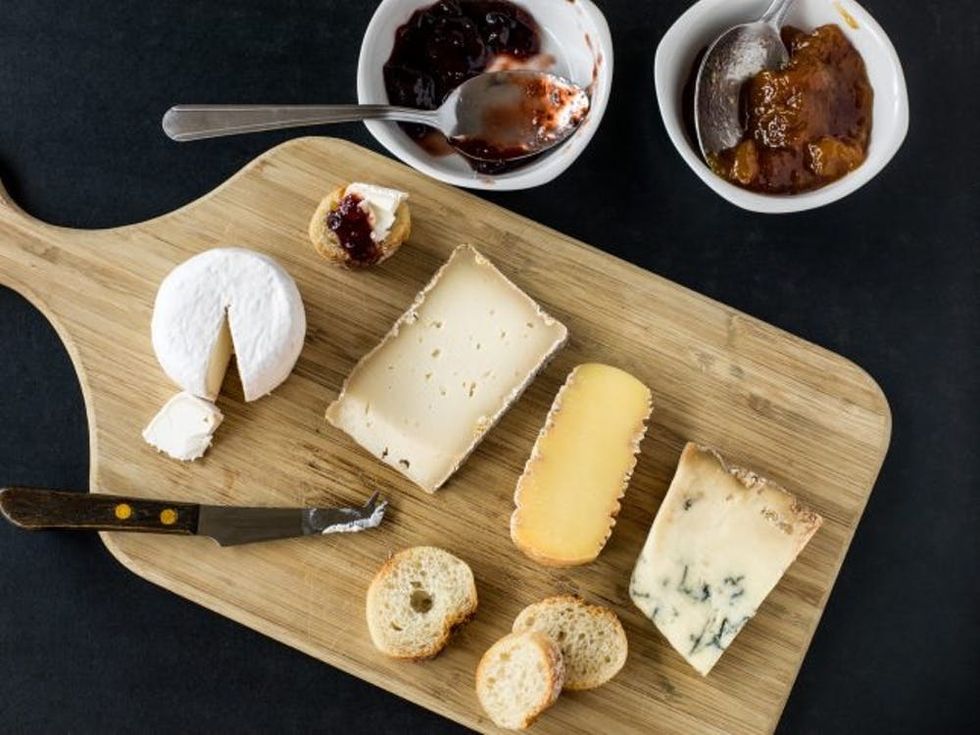
4. Some soft cheeses are okay. While it is true that soft cheeses, like feta and goat cheese, are more likely to be made with unpasteurized milk than harder cheeses like cheddar, many of the soft cheeses you’ll find in your local grocery store and restaurants are made with pasteurized milk. So, before you skip a cheese, check out the label (or ask your server, if you’re at a restaurant)… it’s possible that goat cheese or Brie was indeed made with pasteurized milk.
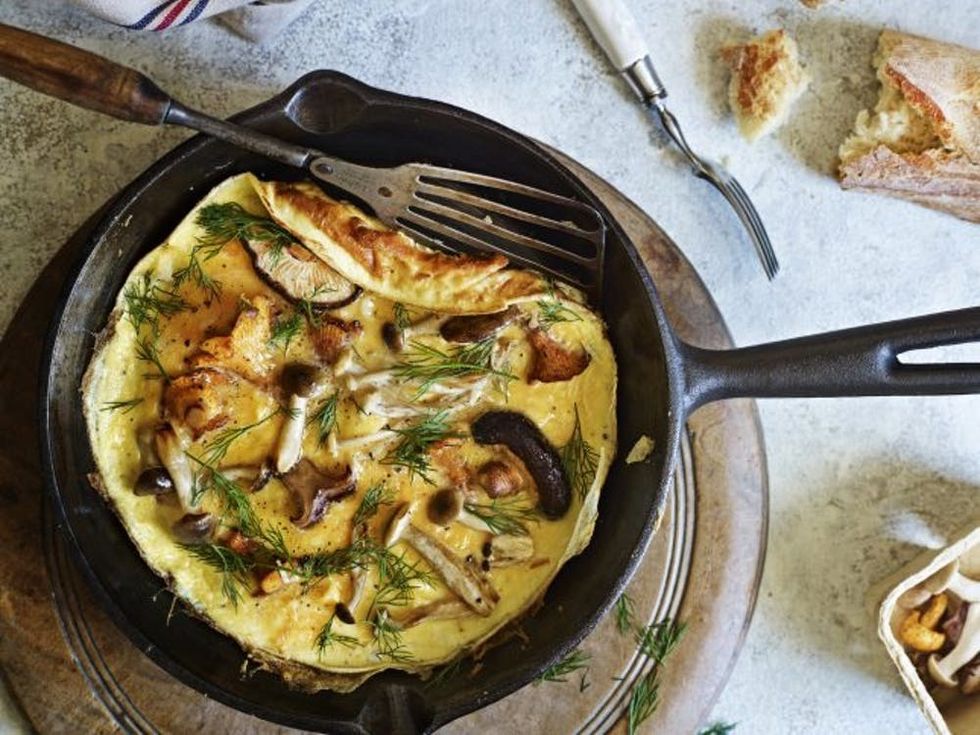
5. Eggs are more than okay… they’re awesome. No runny yolks during pregnancy, because your immune system is a bit more sluggish and the risk for salmonella is increased with runny yolks. BUT cooking eggs so the yolk is solid is a great way to get protein into meals. In addition to protein, eggs are one of the best sources of choline, an essential mineral that works with folic acid to reduce the risk of neural tube defects and plays a role in baby’s brain health.
What are your favorite pregnancy foods? Share them with us @BritandCo and @CJNutrition!
(Photos via Getty)





